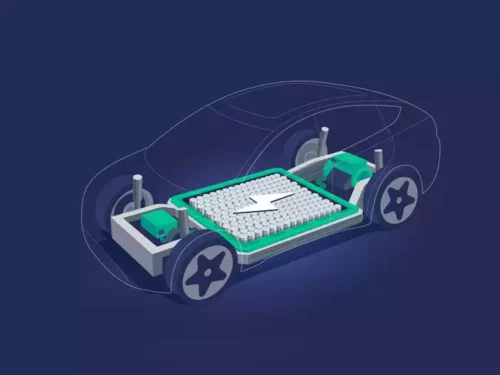The researchers demonstrated the effectiveness of the battery by using it to illuminate a lightbulb.

The environmental challenges associated with lithium mining drive the quest for alternatives to lithium-ion batteries. The extraction process is water-intensive, harms land, and can contaminate water sources. Moreover, lithium is a nonrenewable resource, and its continued extraction at the current rate could deplete accessible reserves.
In a development for the electric vehicle (EV) industry, Microsoft and the U.S. Department of Energy’s Pacific Northwest National Laboratory have announced a discovery that could revolutionise battery technology. Their research has led to the identification of a new material known as N2116, which can reduce lithium usage in EV batteries by up to 70%.
Through a meticulous process, the research team harnessed the power of advanced AI tools to sift through a staggering 32 million potential inorganic materials. This rigorous selection process led them to 18 promising candidates, from which they developed a battery prototype featuring the solid-state electrolyte N2116. The successful testing of this new battery, powering a lightbulb, is a testament to the validity and potential of their research. Solid-state batteries, which use solid electrolytes instead of the liquid or gel-like electrolytes found in current lithium-ion batteries, are considered the “holy grail” of battery technology. They promise longer driving ranges, faster charging times, and a reduced risk of combustion for EVs.
The team mentioned that this is a significant step forward in battery technology and a testament to the global effort to develop a viable solid-state battery for EVs. In addition to solid-state technology, researchers worldwide are exploring alternatives to lithium, such as sodium-ion batteries, which are produced in large quantities in China, and batteries made from materials like aluminium, salt, nickel, and ceramic. This collective effort underscores the shared commitment to sustainable energy solutions.







